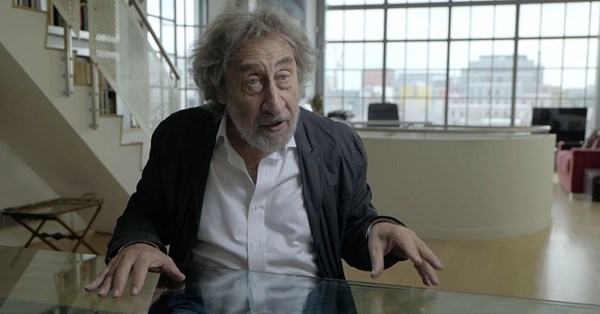OVER the years, many Church Times readers must have enjoyed the ten-minute essay slot A Point of View (Radio 4, Fridays) on its Sunday 8.48-a.m. repeat. The nature of a programme like this is that the theme and, frankly, quality vary. At its best, however — in the hands of a Clive James, Will Self, or John Gray — it provided thought-provoking and beautiful radio: beautiful in the voices of its presenters and their command of spoken English, embodying the reality that language comprises more than words.
Its final edition, on Friday evening, was, therefore, a melancholy moment. Appropriately, Howard Jacobson extolled the essay form itself, and the audio essay in particular: “A voice will give away what words can keep hidden.” Jacobson sees the gifted essayist as embodying a certain scepticism, even directionlessness, not least in relation to religion and politics — and yet A Point of View, in his and others’ hands, often functioned as a sort of secular pulpit. Monologues may be unfashionable, but it has often fallen to Jacobson’s “virtuosity of a single rebel voice” to speak up for decency against madding crowds.
I had assumed that the programme was of some antiquity, but it dates from only 2007, although it builds on a venerable tradition of Home Service and Radio 4 essay-reading, of which Alistair Cooke, in Letter from America, was the paradigm.
Ironically, the essay has regained its power in the discourse of the chattering classes in the 21st century, turbocharged by blogging and more recently by social media. It, therefore, seems a strange moment for BBC Radio to abandon the format. The official reason, that A Point of View has been axed to save money, is difficult to believe. Surely any alternative is more expensive than commissioning an experienced reader to speak into a microphone for ten minutes.
Another show often savoured while driving to or from a church service is Private Passions (Radio 3, Sundays) — which, thankfully, seems to be safe for the moment. This week, Michael Berkeley’s guest on this unashamedly highbrow programme was the composer Gerard McBurney, who was fascinating as he reminisced about studying at the Moscow Conservatory during the final years of the USSR, both before and after perestroika.
I was startled to hear that, since the invasion of Ukraine, McBurney has come under pressure, particularly in the United States, to remove Russian composers from concert programmes. I was gratified to hear him abjure this attitude and refer to Myra Hess’s National Gallery concerts during the Second World War. Hess, who was Jewish, insisted on programming German composers throughout the war. She refused to let the Nazis define her repertoire, even negatively.
Needless to say, Shostakovich and Tchaikovsky didn’t attack Ukraine. We shouldn’t respond to Putin’s barbarism by descending into the pit ourselves.















